Brexit: Could Labour rebels form new party?
- Published
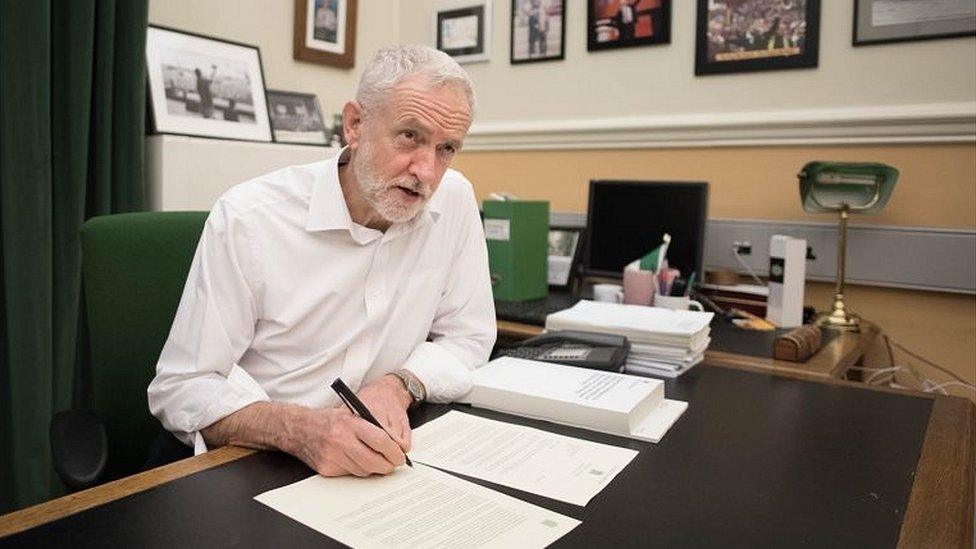
Labour leader Jeremy Corbyn has written to Theresa May outlining his party's demands for supporting a Brexit deal
You'll be used to people in my kind of job saying things like, "these are critical days".
And hands up, on many of the occasions when a big move is predicted, a damp squib often comes along to squelch the expectation.
What I'm about to say may well be a repetition of that familiar phenomenon. But I'm not the only person in Westminster this week to be wondering whether after many, many, many months of private conversations where this possibility was discussed, in the next couple of weeks, maybe even in the next couple of days, something that actually is critical is going to start happening.
It is far from secret that since Jeremy Corbyn was elected, many of his MPs have been unhappy with his style of leadership and clashed with his ideology.
Those who challenged him were comprehensively beaten by the massed ranks of Labour members who rallied to his cause.
And since the 2017 election worked out better for him than many in Labour could ever have imagined, the public attacks on him from his own MPs have been much more muted, with even his fiercest rivals, in the main, keeping their criticisms to themselves. The often predicted splintering of the party has never happened.
But the boiling pot of Brexit and repeated concerns inside the party over anti-Semitism mean that might genuinely be about to change.
Moment of decision
It's no secret that a small group of Labour MPs has been discussing for many months whether to leave the party, and if so, when and how.
For any MP, this is a huge decision. For many of them, whatever their tribe, their political party is like part of their family, certainly a huge part of the fabric of their lives.
But there's a rising expectation that under stress, a small-ish group of Labour MPs might be ready to say goodbye to that, and quite soon.
The unhappiness with the Labour leadership is, of course, not new. But the moment of decision may have arrived because some of the MPs in the small group who are contemplating leaving felt it was worth staying in a party they felt was hostile to them as individuals while they had a chance of influencing Brexit policy.
But as the final shakedown over Brexit approaches and Jeremy Corbyn's attitude to another referendum stays the same - obviously not enthusiastic - their frustration is reaching new levels.
And if they can't get him to the position of backing another vote, for them, what's the point of hanging around to defend a policy they don't believe in, in a party they believe is no longer their own?
Brexit showdown
It's also true for some of those involved, the threat of deselection that would oust them from their seats in any case is very real.
They might prefer to go down on a point of principle over Brexit, than stay around with the threat of being forced out by their own side hanging over them.
It's not impossible, therefore, that before the final Brexit showdown, the long-discussed breakaway group actually breaks away.
Fascinatingly, some members of the shadow cabinet say it would be a really serious blow. Others essentially say, "so what?"
And this doesn't mean that there is a new party, ready to spring out of the box.
It doesn't mean either that the political environment that Westminster operates in will radically, and suddenly, change.
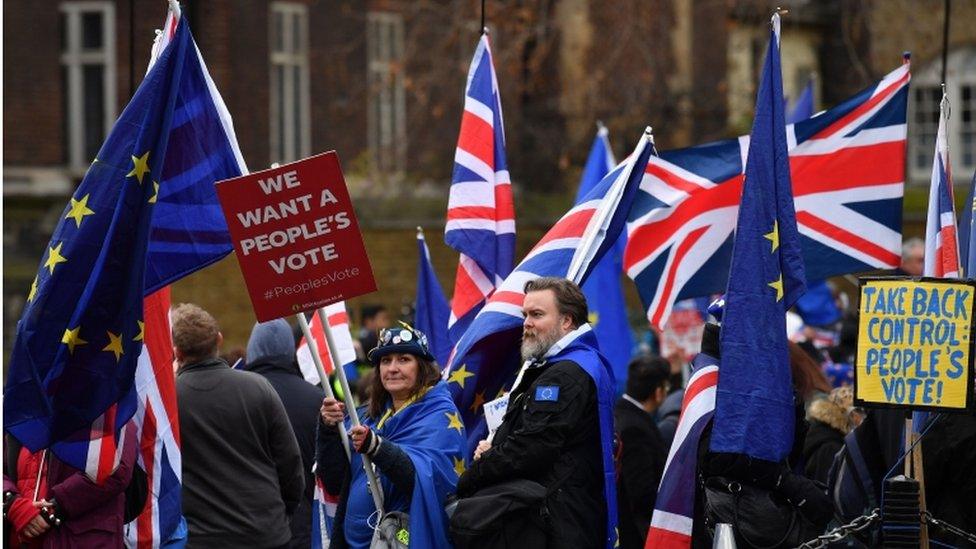
A number of Labour MPs support the People's Vote campaign for another referendum
This may, of course, not happen at all.
Some of those involved have talked in the last 24 hours as if it is inevitably going to happen, and maybe in the next few days. Others are far more cagey, and are dousing expectations.
But there is a detectable sense among those who have been discussing departure for many many months, that if they are ever going to do it, then the moment is coming soon, perhaps very, very soon.
For those who've felt the moment approaching for a long time, enough may now have proved enough.
Brexit has always had the potential to redraw the political lines beyond a period of parliamentary turmoil. As the parliamentary turbulence approaches its peak, perhaps the permanent lines will genuinely break.
- Published13 February 2019

- Published8 February 2019
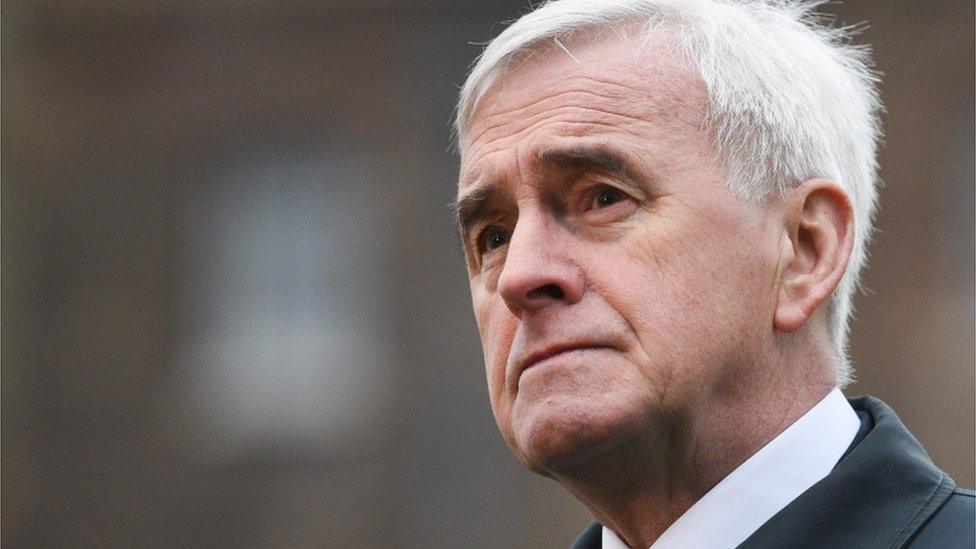
- Published7 February 2019
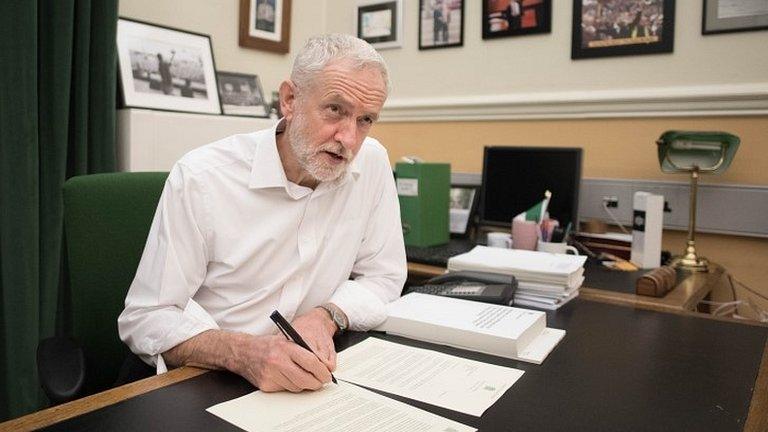
- Published11 February 2019
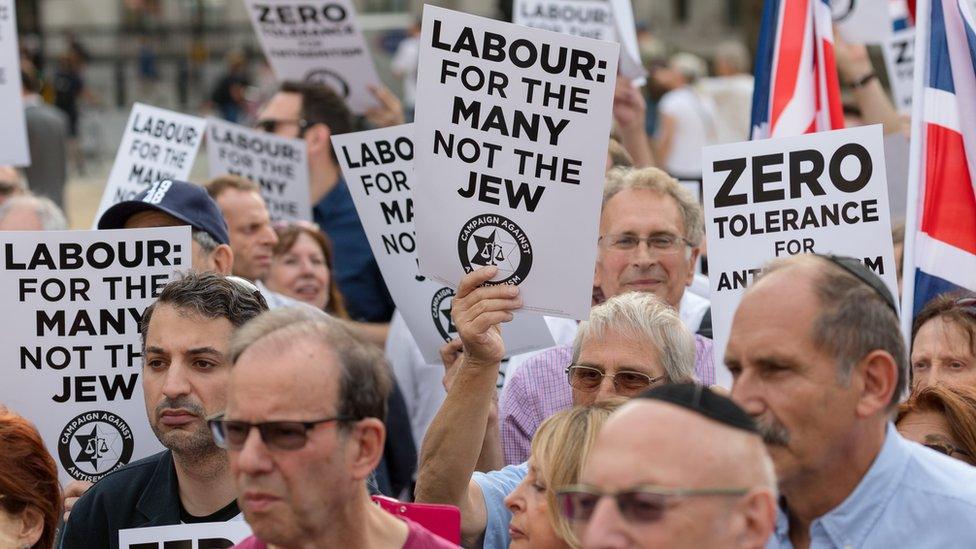
- Published12 February 2019
